Beyond The Return Announces ‘December In GH’
ACCRA TOURIST INFORMATION CENTRE
25TH OCTOBER, 2021
Beyond the Return has officially announced “December in GH’ activities this year. The announcement was made during a press conference at the Accra Tourism Information Centre on Monday 25th October. The Minister of Tourism Arts and Culture, Dr. Ibrahim Mohammed Awal, CEO of Ghana Tourism Authority, Mr. Akwasi Agyeman, member for Beyond the Return Steering Committee, Mr. Kwame Acheampong Boateng Esq., and Deputy CEO of Ghana Tourism Authority, Technical and Operations, Mr. Ekow Sampson were present.
President Nana Akufo-Addo has approved that the events could go on provided they adhere to the strict covid-19 protocols outlined in collaboration with the National Covid-19 Task Force and the Presidential Advisor on Health, Dr. Anthony Nsiah Asare.
Events like Afrochella is one of the highly anticipated events that has already been approved with their date announced for 28th December. Other events coming include Polo Beach Club, Rhythms on da Runway, GUBA Awards, Taste of Ghana, Kwanzaa in Ghana, Diaspora Transition, and Ahaspora Conference will soon be announcing their dates. The Beyond the Return Secretariat is still engaging with event organizers and some events have already been confirmed but committed to adhering to the required protocols. Contactless ticketing is being encouraged as much as possible where tickets can be scanned on mobile devices. By 1st November the full list and calendar of events will be placed on BTR websites.
Guests at the events will be required to present covid-19 vaccination cards before entering all the events that are going to be endorsed and guests ages five and upwards will be required to wear face masks. Temperature checks would be completed before entering all events and entry sanitizer systems will be used along with hand sanitizer stations located throughout the event venues.
The covid-19 pandemic affected tourism on a global scale, the sector has had to find ways to recover from the challenges experienced. According to Dr. Awal, Ghana’s tourism sector suffered losses of eight billion cedis last year. Ghana is expecting about 150,000 foreign arrivals between now and December. The World Bank’s 13 million cedis has already been disbursed to support the tourism sector.
We are launching ‘Destination Ghana’ in the USA and the aim is to increase tourism. It will be launched in Los Angeles and New York. “We want to make Ghana a world tourism destination.”
About December In GH
Ghana has over the year’s gradually become the preferred destination for many from across the world seeking alternatives to snowy Christmas and New Year celebration. The country has seen a rising number of people visiting during the Yuletide with their family and friends to #ExperienceGhana and #ShareGhana. The past years have also seen many Hollywood Stars including Naomi Campbell, Boris Coudjo, Hisham Tawfiq, Lupita Nyong’o, Samuel L. Jackson, T.I., Cardi B and many more visit during the Year of Return.
The Ghana Tourism Authority partners several event organiser to host many events to provide several option for everyone through November to January dubbed “December In GH”. Some of the major events include Afrochella and Afro Nation.
‘Africa Will Be a Powerful Force for World Development’ says Yofi Grant at Ghana Diaspora Investment Summit
Although 2020 was a year filled with global tragedy due to the pandemic, Yofi Grant, CEO of the Ghana Investment Promotion Centre, believes that the year also ushered in Africa’s decade and that Africa as we know it, is not just its citizens, it is every person of African descent living anywhere in the world. He delivered opening remarks at the maiden edition of the Ghana Diaspora Investment Summit which took place June 23 -24, 2021, in person at the Kempinski Hotel and streamed live on social media platforms. The theme of the event was, ‘The New Normal: Leveraging diaspora investments to build back better.’
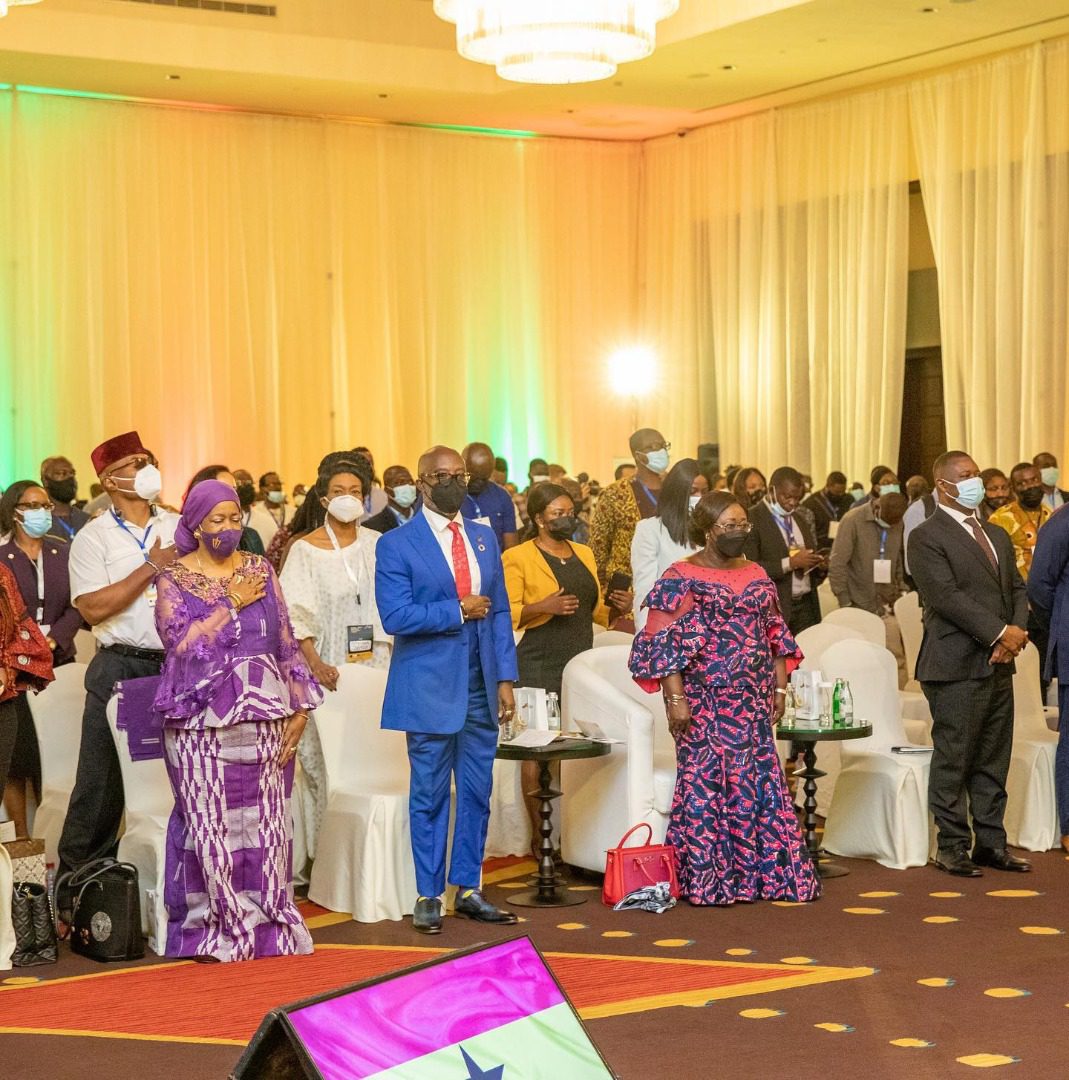
The event was organized by Ghana Investment Promotion Centre who partnered with the Beyond the Return Secretariat, Ghana Tourism Authority, Diaspora Affairs, Office of the President, Diaspora African Forum, Ministry of Foreign Affairs & Regional Integration, and the Ministry of Information.
The core focus of the 2-day event was to provide an overview of investment opportunities in Ghana, learning from key business players in various industry sectors, encouraging partnerships between the public and private sectors, sharing ideas, plans and policies for support of the business climate, and feedback from diasporans about potential and areas that need improvement.
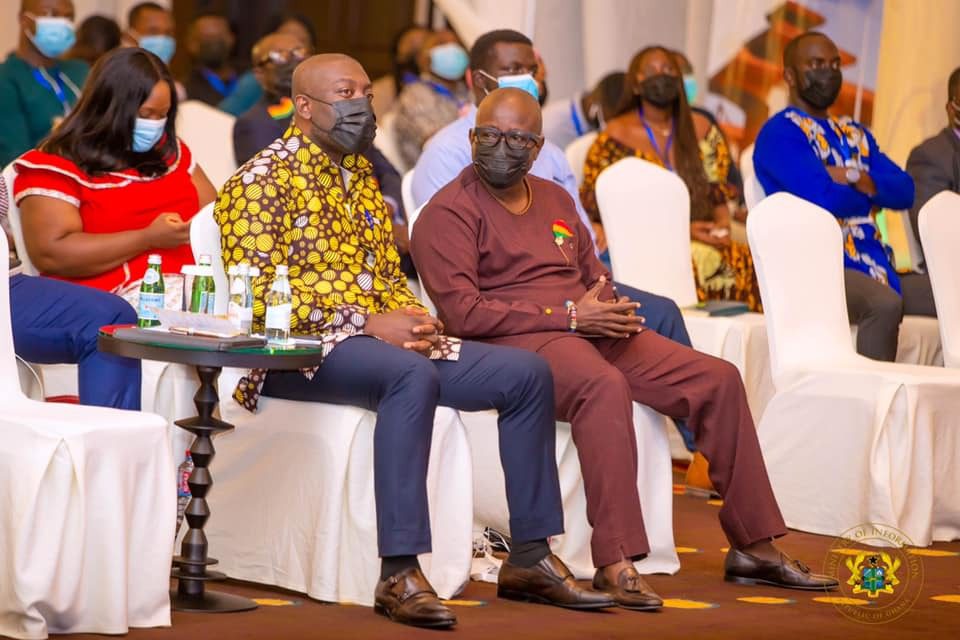
One of the important pillars of the ‘Beyond the Return’ initiative is Invest in Ghana and this event played a key role in supporting that initiative. “This has been a successful summit,” said the CEO of Ghana Tourism Authority, Akwasi Agyeman, “As the Minister of Information said, it shouldn’t remain a summit, there has to be action after the summit.” Agyeman said that taking advantage of networking at the event provided valuable opportunities that fostered new relationships and established synergies to create new products, services, and programs. He added that he is looking forward to next year when we would hear about the fruits of collaborations that were sparked at this event.
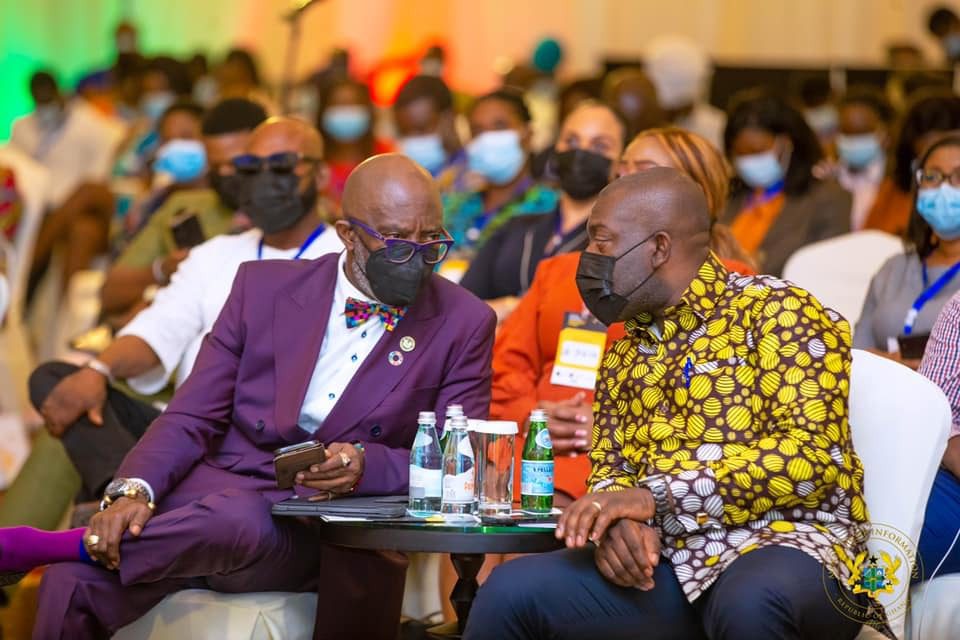
Stories of impact were also shared by diasporans who have made the return to Ghana, started their own businesses and creating investment opportunities for themselves and for others. Neil Oku, CEO of Golden Coast Developers was one of the featured speakers who shared his personal experience on moving to Ghana. “I wanted to feel that I was really going to make a change and that’s what really drove me to Ghana,” he said. Oku left his job on Wall Street to build a new career based on the opportunities he saw. “I came because I felt Ghana was the next wave. Ghana was really moving towards a trajectory…. you don’t have to be a Ghanaian to feel the innovation going on.”
H.E. Ambassador Erieka Bennett, who is Head of Missions at the Diaspora African Forum, shared the importance of remaining connected with diasporans who continue to have a strong interest in visiting, moving to or investing in Ghana. Bennett said that African Heads of State are understanding that in order to move Africa forward we need to move with the diaspora. “Every Diasporan I know, they want to come to Ghana,” she said. “There’s a lady who is 107 years old…. she’s coming to Ghana with her brother who is 100 and some of her colleagues who are 92 and 95.” This woman is a survivor of the Tulsa Massacre in 1921 when white residents burned down a prominent Black business district. Ambassador Bennett is one of the most engaged with the diaspora community when they make their transition to Ghana.
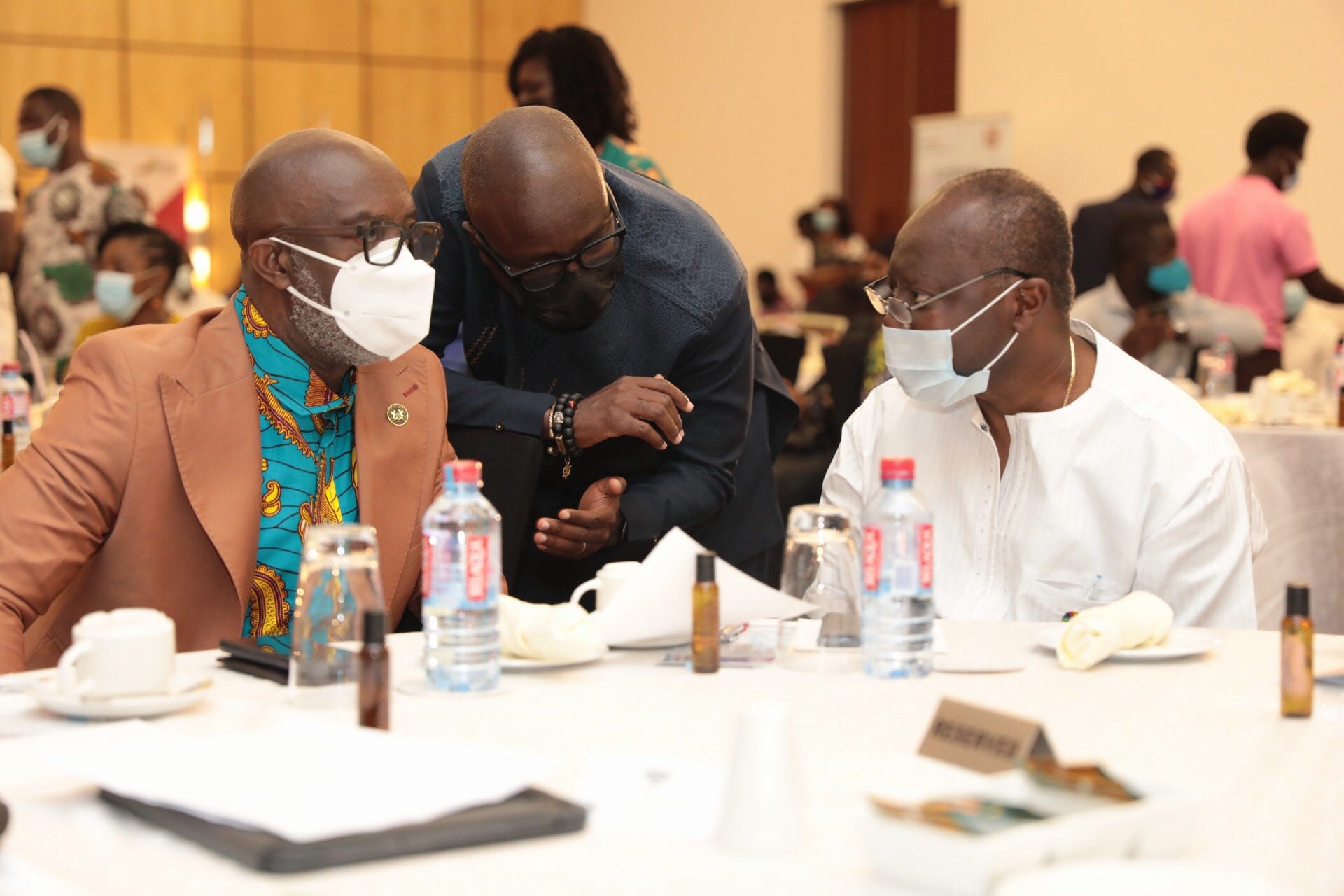
Minister of Finance, Ken Ofori-Atta, said there are enormous opportunities to grow in Ghana and grow with Ghana. Ofori-Atta returned to Ghana 30 years ago after living abroad and partnered to start an investment bank at a time when resources available for launching a business in Ghana were far less than they are today. In sharing his personal journey, he wanted to narrate that despite the challenges it can be done, and Ghana is a great place to do it.
He has an appreciation of what it takes to make the leap to move to Ghana and urged people in the diaspora to make it a personal decision without influence of politics or others around you. “Look deep down in your heart as to why you are coming,” he said. “It’s spiritual, economic, 400 years…it’s here and we should all come back home.”
By: Ivy Prosper
African Diaspora in Ghana to join Beyond the Return to plant trees as Ghana goes green
The ‘Beyond The Return’ program is partnering with the local diaspora community to plant trees for the “Green Ghana Project,” which is an initiative championed by the Ministry of Lands and Natural Resources and the Forestry Commission.
On Friday, 11th June 2021, five million trees will be planted across Ghana. Planting trees will help protect watersheds, reduce erosion and moderate the climate, and serve as habitat and provide food for many birds and other wildlife.
Diasporans representing the Diaspora Coalition, African American Association of Ghana, Ghana Caribbean Association, Omega Psi Phi Tau Chi chapter, and Voyajah will plant trees on behalf of the ‘Beyond The Return’ program and the Give Back Ghana” pillar.
About Beyond the Return
‘Beyond the Return’ is a 10-year initiative with the theme, ‘A Decade of African Renaissance’. The vision is to continue fostering relationships with the global diaspora community through tourism, investments and repatriation.
The initiative is a follow up to Ghana’s ‘Year of Return’ campaign and is Cordinated by the Ghana Tourism Authority under the auspices of the Ministry of Tourism, Arts, and Culture.
For more information about ‘Beyond The Return’ visit www.beyondthereturngh.com or social media @beyondthereturn
The NAACP And Ghana, A Shared Identity
The National Association for the Advancement of Colored People (NAACP) has been at the forefront of the civil rights movement for over a century. Founded, on February 12, 1909, they are the oldest civil rights organization in the United States. As we mark their 112th anniverary, it was important to share a brief history of the organization and why they are still important today.
What many people don’t know is that the Niagara Movement, which was an organization of black intellectuals, is seen as the predecessor of the NAACP. The Niagara Movement included 29 African Americans who had a secret meeting in 1905 in Fort Erie, Ontario Canada (close to Niagara Falls). Where they created a manifesto that was focused on finding ways to abolish racial discrimination. Many of the members of the Niagara Movement, were subsequently some of the founders of the NAACP.
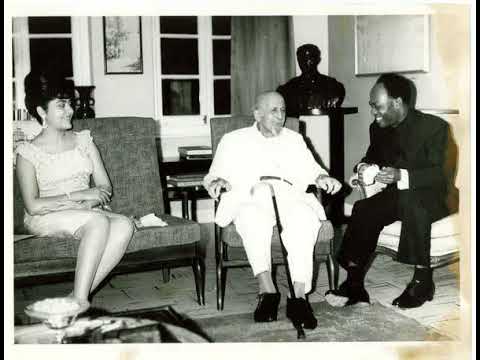
One of the most notable founding members of the NAACP, was W.E.B. DuBois, who went on to become one of the most important historical figures in the Pan Africanist movement. President Kwame Nkrumah convinced DuBois to visit Ghana in 1960 and he eventually moved and became a Ghanaian citizen. He died in Ghana and was buried there, his grave being one of the most visited sites in the country.
Other founding members of the NAACP included Ida B. Wells-Barnett, Mary Church Terrell and a group of white liberals who also wanted racial justice; Mary White Ovington, Oswald Garrison, William English Walling and Dr. Henry Moscowitz.
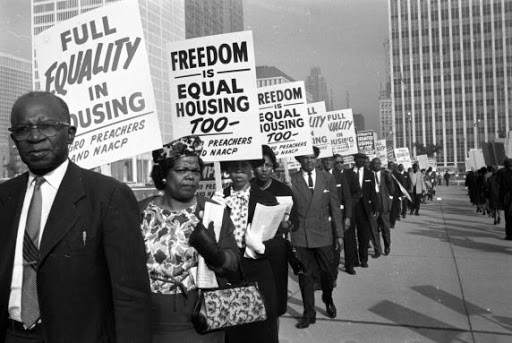
Throughout history, the NAACP has fought against the many injustices that faced Black people including, voting rights, segregation, racial violence, discrimination in employment opportunities, anti-lynching, education and many more of the constitutional rights they were being denied.
The NAACP has also been at the fore when it comes to important litigation cases. They established the NAACP Legal Defense & Education Fund in 1939 and have been successful in legal battles that have led to changes in the legal system including the 1954 school segregation ruling in Topeka.
During the 1980s, the NAACP showed their solidarity for Black South Africans when they spoke publicly against the Apartheid system, which was reminiscent of the experiences African Americans also had in the United States.
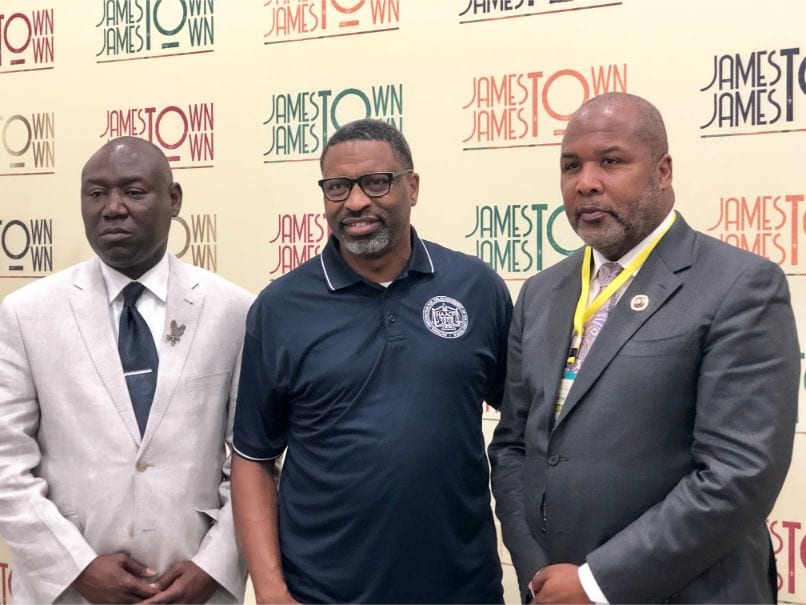
Derrick Johnson currently serves as the 19th President of the NAACP. He has led the organization with being on the frontlines of many current pressing issues of the African American community. In 2019, he also partnered with the Jamestown to Jamestown project that marked the 400 year anniversary of the documented ship of enslaved Africans that arrived in the U.S. It was a collaboration with the ‘Year of Return’ and The Adinkra Group and brought over 250 African Americans on a life-changing journey to Ghana. It was a historic trip as a Grand Durbar was held in their honour and the President of the Republic of Ghana, Nana Akufo-Addo, was in attendance and gave a special warm welcome to all the African Americans by taking a moment to shake everyone’s hand. “We want to thank you for the open arms that you have received us with. We are proud to be African, we are proud to be a part of this great celebration. We are proud to be with you today,” Derrick Johnson said when addressing the crowd at the Grand Durbar in Jamestown, Accra.
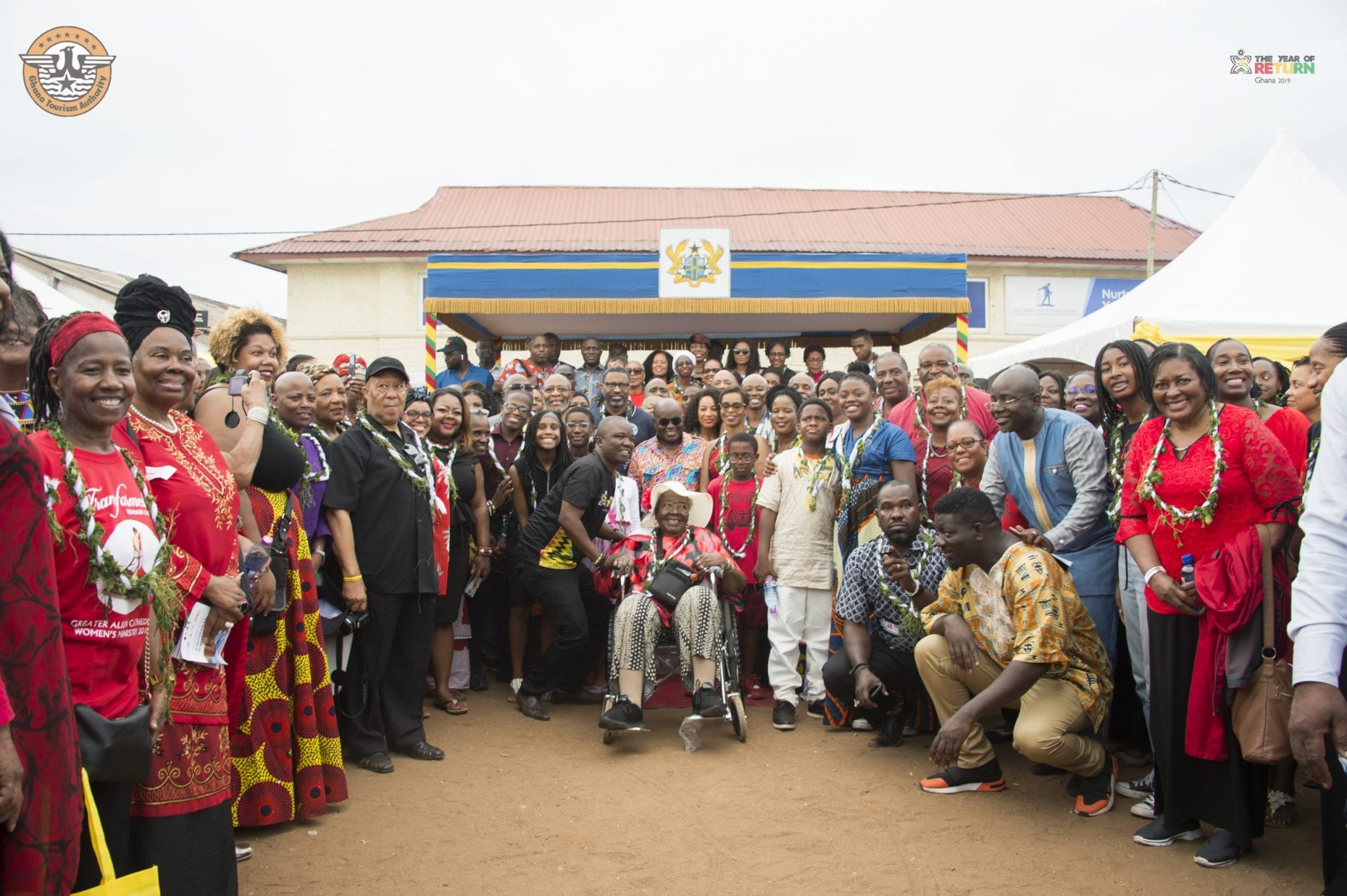
The NAACP continues to play an important role in the lives of the African American community. They are actively involved in federal advocacy, justice, education, supporting economic opportunities, health and diversity in America.
‘Beyond the Return’ – 7 Unveiled Pillars Promises Deeper Connection With Diaspora
The official unveiling of the ‘Beyond the Return’ Pillars took place at the National Theatre on 9th September 2020. ‘Beyond the Return’ is a 10-year project with the theme, ‘A Decade of African Renaissance’ and its foundation is built on the seven core pillars which were unveiled during the event which was filled with a colorful display of dance, music and theatrical performances from the National Theatre’s dance ensemble, dramatic actors and the National Symphony Orchestra. Beyond the Return is the follow-up to last year’s successful ‘Year of Return’ campaign, which commemorated the 400-year anniversary of the first documented ship of enslaved Africans to arrive in Virginia, U.S.A.
CEO of Ghana Tourism Authority, Mr. Akwasi Agyeman, is also the Coordinator for the Beyond the Return Steering Committee. In his speech he acknowledged the loss of African American actor Chadwick Boseman, whose unexpected death last month shocked the world. He died after a 4-year battle with colon cancer. The actor played a pivotal role as the lead character in the movie, ‘Black Panther’. The film contributed to changing the narrative of Africa and proving that Black Superheroes and stories of Africa can connect with all audiences. “May I request that we all rise for a minute of silence? One for our ancestors who went through the torturous journey of slavery, two, for our brothers and sisters who have fallen in recent times, especially our brother Chadwick, of Black Panther fame,” said Mr. Agyeman. He also asked that we honour the late Elolo Gharbin, who died recently. He was a Lecturer at the University of Cape Coast and a strong pillar in PANAFEST and Emancipation.
Mr. Agyeman chronicled the beginnings of the Year of Return and stated that this new journey of Beyond the return would have deeper conversations among the global African family. Beyond the Return, will work towards building bridges and creating activities, events and policies that are inclusive and integrate our local community in ways they can connect with our global African diaspora. Most importantly there is work being done to support the diaspora’s needs when it comes to repatriation.
“Each of the 7 pillars being unveiled today touches on the many areas that are key to developing Ghana and providing an environment that supports the diaspora,” said Hon. Barbara Oteng-Gyasi, Minister of Tourism, Arts and Culture when she delivered her keynote address. She expressed that the Beyond the Return committees are listening and working diligently to address the concerns expressed by the diaspora community, especially when it comes to repatriation. “Ghana is currently developing a homeland return legislation to facilitate various forms of migration and integration into the country for our diasporan kith and kin,” she said. “Ghana as a leader in pan Africanism, through the Homeland Return Act, will offer the opportunity for citizenship to our brothers and sisters.” This is welcome news to all the diasporans who have been asking how they can also become Ghanaian citizens.
The Senior Minister, Hon. Yaw Osafo Maafo, recognized the significance of the Year of Return, as he officially unveiled the pillars for Beyond the Return. “One cannot speak of Beyond the Return without mentioning the Year of Return in 2019, which was a major landmark campaign targeting the Historical African Community outside our continent,” the Senior Minister said. “Over the next decade, the project seeks to consolidate the gains of the Year of Return and grow tourism in the country, showcase its investment potentials and solidify its diaspora engagement programs to promote the African Renaissance.” The seven pillars unveiled during the event are, Experience Ghana, Invest in Ghana, Diaspora Pathway to Ghana, Celebrate Ghana, Brand Ghana, Give Back Ghana and Promote Pan African Heritage & Innovation.
The unveiling of the pillars was a historic event that has kickstarted a new chapter in Ghana’s journey of reconnecting with the global African family.
Beyond the Return Diaspora Features – Rashad McCrorey Settled into Life in Ghana During Pandemic
Since Ghana’s borders were closed in March, due to the Covid-19 pandemic, there have been thousands of people who were in the country on a visit for travel, business or leisure, who have been stuck within Ghana’s borders. Most are hoping Ghana would open soon so they could return to their respective countries. For many, it’s been a scary situation, while for others, it’s actually been more of a safe haven while watching the rest of the world battle with the Covid-19 outbreak.
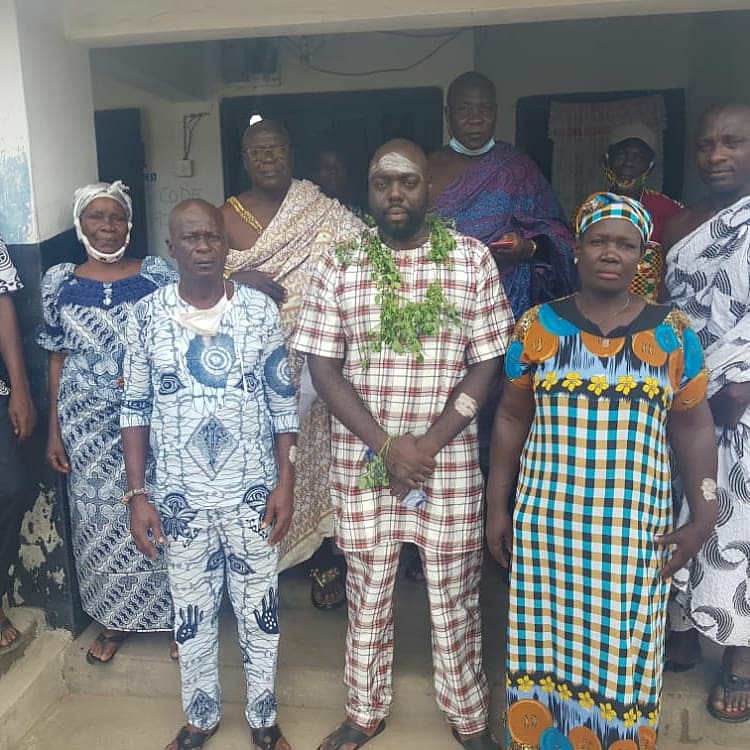
For African American Entrepreneur and Writer, Rashad McCrorey, what started off as a possible scary situation, has turned into one of the greatest blessings. He had travelled to Ghana earlier this year for business shortly before Ghana confirmed its first few cases of Covid-19. As concerns grew over the danger of this global health crisis, Ghana’s President Nana Akufo-Addo made the decision to close the country’s borders. “At first I was scared,” McCrorey said when asked about his initial feelings when the pandemic broke out. “…but I reminded myself that fear is always a sign for opportunity. Once I calmed myself down, I carefully evaluated all my options.” He said he spoke with his mother and some of his Ghanaian associates in the country and he was able to conclude that his best decision was to stay in Ghana. As the United States arranged for repatriation flights back to the U.S., he could have left Ghana, but decided to stay.
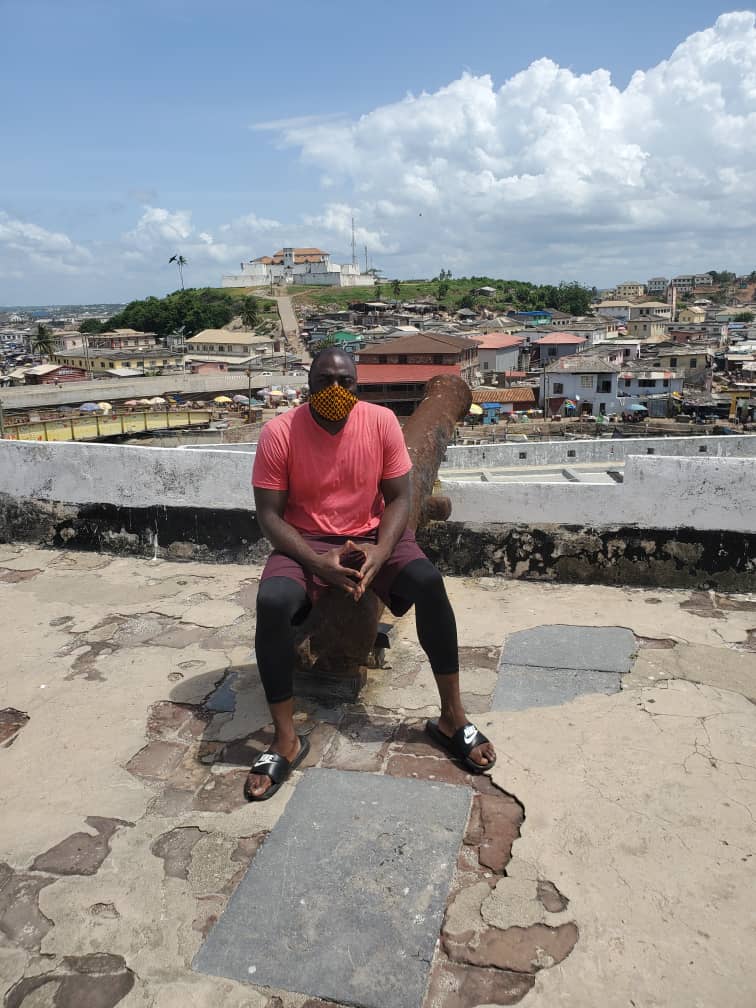
McCrorey is from New York City, which was America’s Covid-19 epicentre, at the time he was making the decision to remain in Ghana. As he watched the news and what was happening there he was very concerned if going back there would be a wise decision. “I thought about my health, as I have chronic asthma,” he said. “..and what effects Covid-19 in New York City would have on my lungs.” He is the founder of Africa Cross-Culture, a travel company that specializes in back to Africa trips to Kenya, Nigeria, Egypt, Rwanda and Ghana. Because of the type of business he does, he thought staying would also be a wise business decision. He could better promote Ghana while he was here rather than in lockdown in New York.
“I believed that being an American in Ghana during the pandemic would be a great news story which it has proven to be. Especially considering my circumstances of only planning to be in Ghana for 2 to 3 weeks for business and now entering my sixth month in Ghana and knowing my stay is truly indefinite,” he said. Since being in Ghana during this time, McCrorey has gained media attention from news outlets in America and here in Ghana. He’s been able to give his perspective being an American in a West African country during a global pandemic. He has even become a contributing writer with reputable media outlets in Ghana and abroad.
Originally staying in Accra, he moved to Aburi when the lockdown started and now he’s fallen in love with the Central Region of Ghana and has spent a significant amount of time in Cape Coast and Elmina. He has connected with people in the diaspora community who have settle in the region. He says it feels most like home in the Central Region.
McCrorey said that he has always had a desire to visit Africa and said his late father was a true Pan Africanist. He says the urge to come to Africa started when he was just six years old. “My dad taught me about the great kings and queens of Africa. He taught me the practice of ancestral worship, meditation and thinking outside the box using intuition.” He speaks highly of his father’s influence on him when it comes to the love of Africa. “…anything I accomplish in my role of the African diaspora is attributed to his teachings,” he said.
His trip to Ghana this year is not his first. “Between 2015 to 2018 I had already visited Ghana more than a dozen times,” he said. “When I first heard about the ‘Year of Return’ initiative it was a dream come true. My mission and vision was for black Americans returning to Africa…it was like the completion of my dream coming into reality. Finally, stereotypes about Africa will be debunked by the masses.” During the ‘Year of Return’ 2019, he brought four different tour groups to Ghana with a total of 102 guests. He said that it was good that black Americans now have African tourist destinations and not just the same old non-African places they are used to like Cancun, Dubai and countless other places.
When President Nana Akufo-Addo announced 2 weeks ago that there was a possibility of the borders opening soon, there was a glimmer of hope for travellers stuck both in and out of the country. On Sunday August 30th, the president announced the official reopening of Ghana’s borders by air. Kotoka International Airport will resume operations on September 1, 2020.
When asked his plans once the country opened McCrorey said he will have to be strategic and consider all his options. He said it would depend on what benefits there are in staying in Ghana versus returning home. He suggested the possibility of simply travelling to Egypt from Ghana before even going back to the United States. “I have a long-term plan, but I am also aware that opportunities can come at any time that could extend or cut short my stay,” he continued. Even though he has been deliberate with his time in Ghana, he says the unknown still lies in returning home to the U.S.
COVID-19 guidelines released ahead of reopening of airport on Sept 1
The Ghana Health Service (GHS) has written to the management of the Kotoka International Airport (KIA) detailing safety protocols for the resumption of international air travel amidst the COVID-19 outbreak.
Authorities of the health management body say they have identified overcrowding as one of the major factors contributing to the spread of the virus hence the instituted measures to stem the rate of infection during the easing of COVID-19 restrictions on flight travel.
The GHS says in view of this, the Ghana Airports Company Limited must demonstrate it would not be a place for the transmission of the virus.
Key amongst the four measures is for the airport management to ensure that there is no form of congestion at the facility while ensuring strict adherence to social distancing and compulsory wearing of face masks protocols.
Below are the measures the GHS has ordered KIA to put in place:
1. Ensure there is no congestion at all sections of the airport (arrival, departure and environs) to fail adherence to social distancing protocols.
2. Compulsory mask wearing for all passengers (both arriving and departing) as well as staff
3. Temperature monitoring to continue at both arrival and departure terminals
4. Ensure social distancing and compulsory mask-wearing at the car parks and in front of all terminals.
Ghana Health Service is hopeful should these measures be operationalized and strictly adhered to, the potential risk of COVID-19 transmission at the Kotoka International Airport as a result of the reopening of the country’s air border will be minimal.
It has also assured the airport management of its highest form of cooperation to “develop the enabling protocols for ensuring passengers and staff safety.”
Recently, President Akufo-Addo hinted the country is preparing to reopen its airports to human traffic.
According to the president, he has instructed the Ministry of Aviation, the Ghana Civil Aviation Authority and the Ghana Airports Company Limited to work with the Ministry of Health and its agencies, to ascertain the country’s readiness to reopen the airport.
Already, the GHS has said it was engaging various stakeholders to come up with modalities to ensure all persons who arrive in the country are tested for COVID-19 ahead of the possible opening of air borders in September.
Ghana’s air, sea and land borders were closed on Sunday, March 22, 2020, as part of efforts to stop the spread of COVID-19 in the country.
The closure left thousands of Ghanaians who have consistently appealed for help over the last few months stranded abroad.
The President reminded Ghanaians that “special dispensation will continue to be given for their evacuation back to Ghana.”
But the government’s pre-condition for evacuation was that the stranded citizens bear the full cost of their ticket 14-day mandatory quarantine when they arrive in the country because of the threat of the novel coronavirus.
In some instances, the government has subsidized the cost of travel and quarantine.
Source: citinewsroom
Emancipation Day Virtual Panel Discussion on Leveraging Our Resilience; Black Lives Matter
Every year, since 1998, Ghana celebrates Emancipation Day with a series of activities that honour leaders of the Pan African movement and celebrate the day when slavery was abolished in most British Colonies on August 1, 1834. This year, due to the Covid-19 pandemic, and restrictions on crowds and the number of attendees at events, adjustments were made to accommodate and still have significant conversations to learn and grow from our past.

This year, a Virtual Panel Discussion was held on 28th July via the Zoom Webinar platform. Moderated by Aisha Addo, founder of the Power to Girls Foundation, the panel’s theme was Leveraging Our Resilience; Black Lives Matter. The panelists included African American Actor and Activist, Lou Gosset Jr., Pan Africanist, Professor Kojo Yankah, Leader of Diaspora Coalition of Ghana, Rabbi Kohain Halevi, and Author, Lala London.
The conversation’ theme was in response to the ongoing racial protests sparked by the death of George Floyd, who was killed by a Minnesota Police Officer in May. Since then, the Black Lives Matter movement has become a global phenomenon working to topple racist institutions in the U.S., Canada, the U.K., and Europe. Black people are standing up and speaking out against the institutionalized racism that exists in law enforcement and other systems.
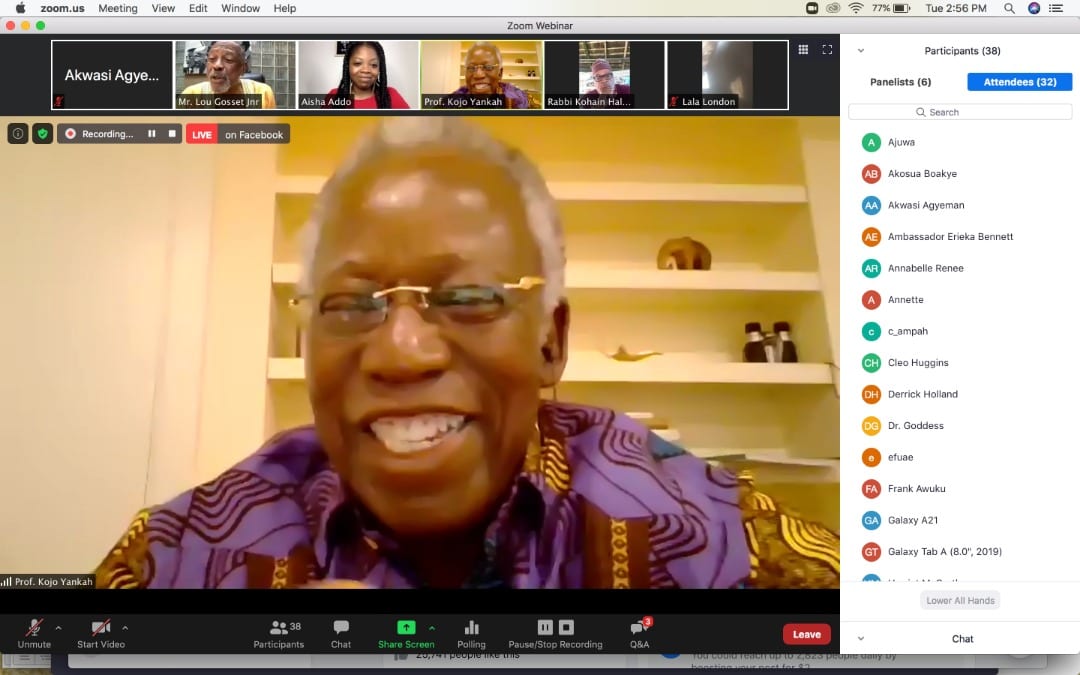
The notion of Africa as home, is becoming a renewed conversation and the pan African movement has been re-awakened. Professor Kojo Yankah, was the former Chairman of the PANAFEST Foundation for over a decade and has been a part of the pan African movement for most of his career. He said that black lives have mattered from early history when the royal African civilization was destroyed by the Greeks. He said that everything about the black person, the African, was destroyed and it continued through the period of slavery. “The culture of the African was further destroyed, not only by getting the Europeans to put their needs on the head of Africans, but they destroyed the humanity of the African….they were successful in getting the African to feel inferior,” he said.
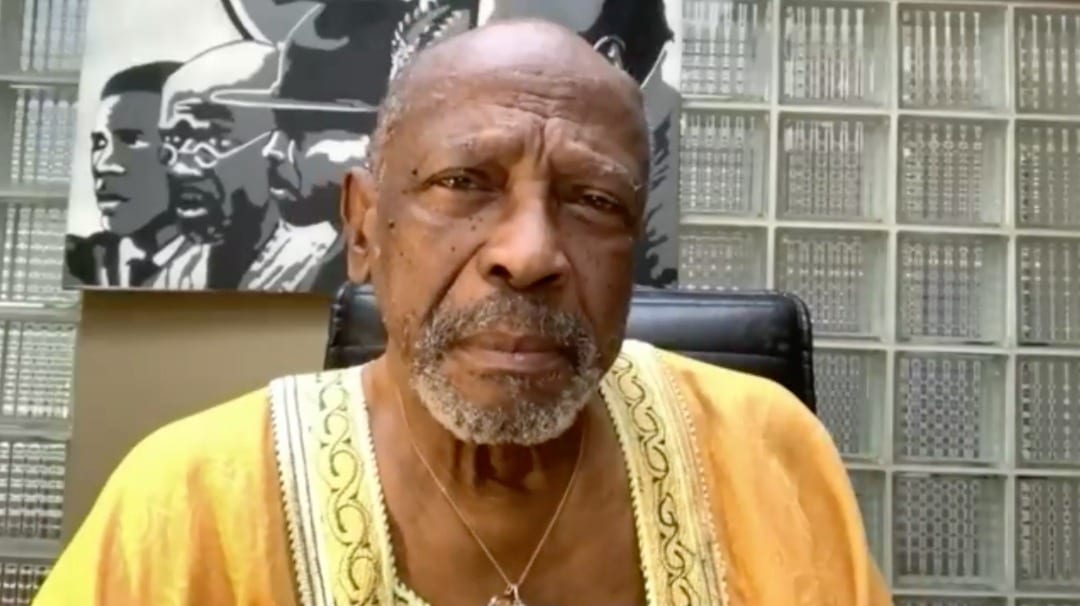
Lou Gosset Jr. is an award-winning African American Actor and Activist. He is he great-grandson of a slave and took a DNA test that revealed he is of Liberian and Sierra Leonean descent. His role in the 1977 miniseries ‘Roots’ catapulted him to stardom. On the panel discussion he shared his sentiments on the first time he traveled to the continent of Africa. “What I heard about Africa, is nothing in comparison to what I saw,” he said. “I could not wait to go back home and be proud to talk about what I found out.” The way Africa is often portrayed, many first-time visitors are surprised by what they see. He suggested therefore it is important for people in the diaspora to make their own journey and see Africa for themselves to break and dispel the myths.
As someone working in the creative industry of film, he also spoke about the roles he has played and how it is part of the narrative. Yankah added that our history did not start with slavery and it is important for our filmmakers and writers to get to work creating our stories, so we are not so narrow-minded.
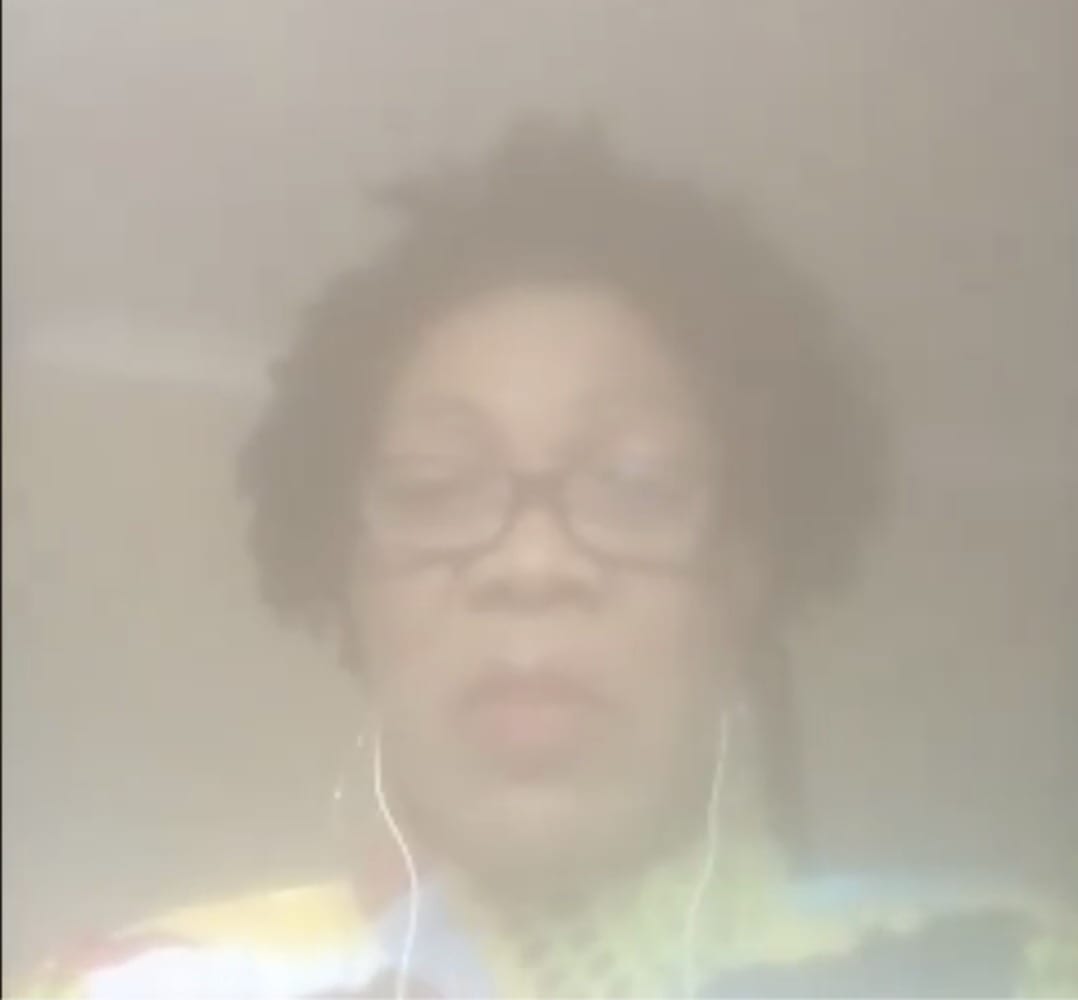
Author, Lala London, came to Ghana on a visit from St. Vincent and the Grenadines before the pandemic. Like many travelers, she is in the country until borders open. During the discussion, she said, “My own grandfather was the son of a slave….so these issues are really dear to me.” She spoke of how the Black Lives Matter movement affects her directly, having a son who is an African American. “We see what happens every day in a country that is supposed to be the bastion of democracy…where black lives somehow just don’t matter,” she added.
Moderator Aisha Addo asked the panel what actionable steps can we use to drive the concept of unity and moving forward across the diaspora and in Africa? Rabbi Kohain Halevi answered her saying, “I think we need to set a new paradigm for what a model society should be today….we have to surpass the model in current existence…include respect for human rights.” He continued by explaining that slavery was a mental construct that set a mental state in our people and we need to work towards dismantling that before we can think of reconstructing it.
Mr. Gosset said that we need to work on our communication. Being an elder, he said he sees the importance in that now. Unity is perhaps the most important part of progress in the black community both in Africa and the diaspora. Sometimes we see a division between the African Americans and the continental Africans, and we need to bridge the gap. He added that, “We cannot make it unless we add our Africans to the fight.”
Ms. Addo asked for one power statement from the panelists before wrapping up the Virtual Discussion and Professor Yankah give a meaningful response. “Since we are also commemorating Emancipation, I would like to hammer the point made that we need to get all our creative people to now focus on what we have lost,” Professor Yankah said, “…we need themes that unite and revive the consciousness of our people…in terms of being proud of who we are and raising the consciousness of blackness.”
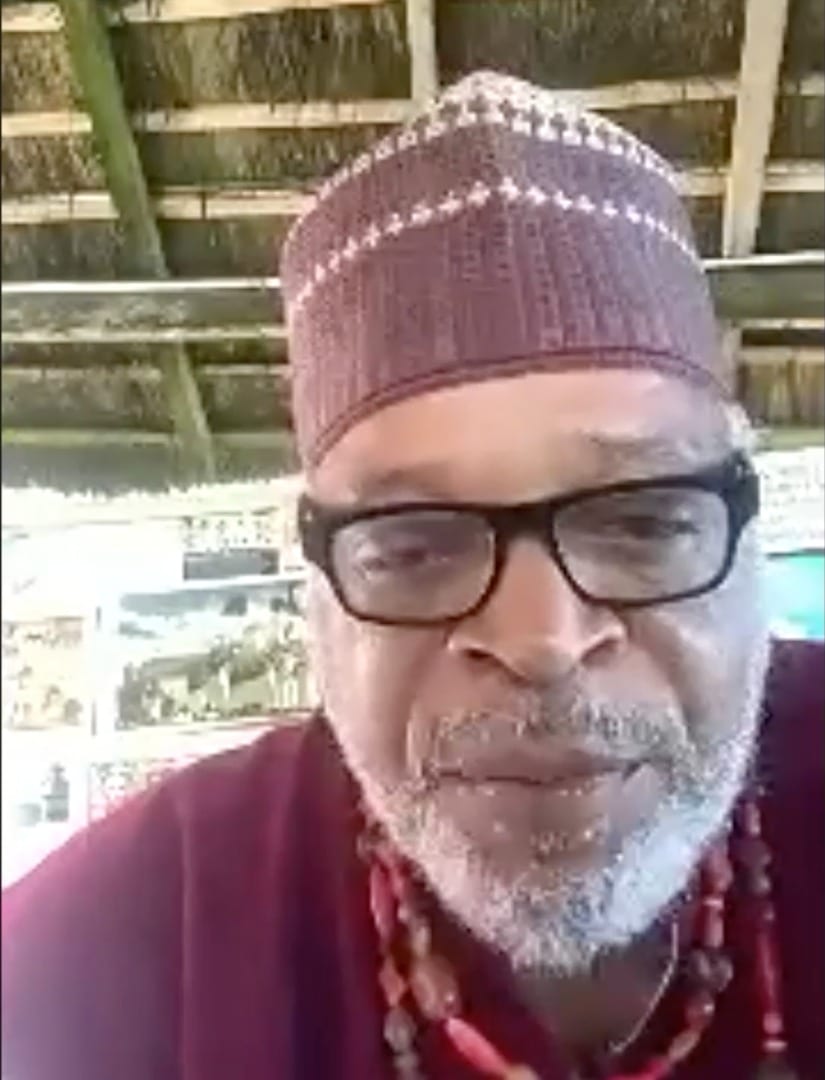
Rabbi Kohian said that during the season of Emancipation we should remember to emancipate ourselves from mental slavery. “If we are not for ourselves, who will be for us?”
By: Ivy Prosper
Back to the Motherland Documentary Now Streaming Worldwide
Back to the Motherland is a documentary film produced by Pamela Sakyi that explores the steps needed for relocating to Ghana. In the film, she highlights the testimonies of many Ghanaians who are living in the diaspora and embarking on the possibility of moving to Ghana.
The movie was endorsed as an official Year of Return event commemorating the 400-year anniversary of the first documented ship of enslaved Africans to arrive in Virginia. The movie debuted in October 2019 in London. Unfortunately, there were many diasporans who didn’t get the opportunity to watch the film at the time. This is why it’s exciting to announce that this movie is available to stream online worldwide.
In the film Pamela also investigates her own family’s history in the town of Berekum and she aims to learn about the ways she too can migrate into Ghana’s local culture and make her own contribution to the community and Ghana’s economy.
The movie touches on the many conversations people in the diaspora are having after answering the call to ‘return home’ to Africa. The documentary features Dentaa Amoateng MBE, CEO GUBA Enterprise, HE PApa Owusu-Ankomah, High Commissioner to the UK and Ireland and Lorissa Akua of The Only Way is Ghana and Co-Founder of The VillageGH and many more.
The movie is just £2 and you can view it today by signing in using this link: https://gumroad.com/sparklelight.
By: Ivy Prosper
Ghanaians and Diasporans Come Together to Remember George Floyd in Memorial Service
Friday June 5, 2020 – DuBois Centre Accra
Together with the Diaspora African Forum, the Beyond the Return/Year of Return team, Ghana Tourism Authority, the African American Association of Ghana, the Diaspora Affairs Office, members of the diaspora community and some Ghanaians, a ceremony was held in memory of George Floyd, the African American who was killed by police in the United States. Floyd’s killing was captured on video and has sparked protests and rallies from people of all races around the world.
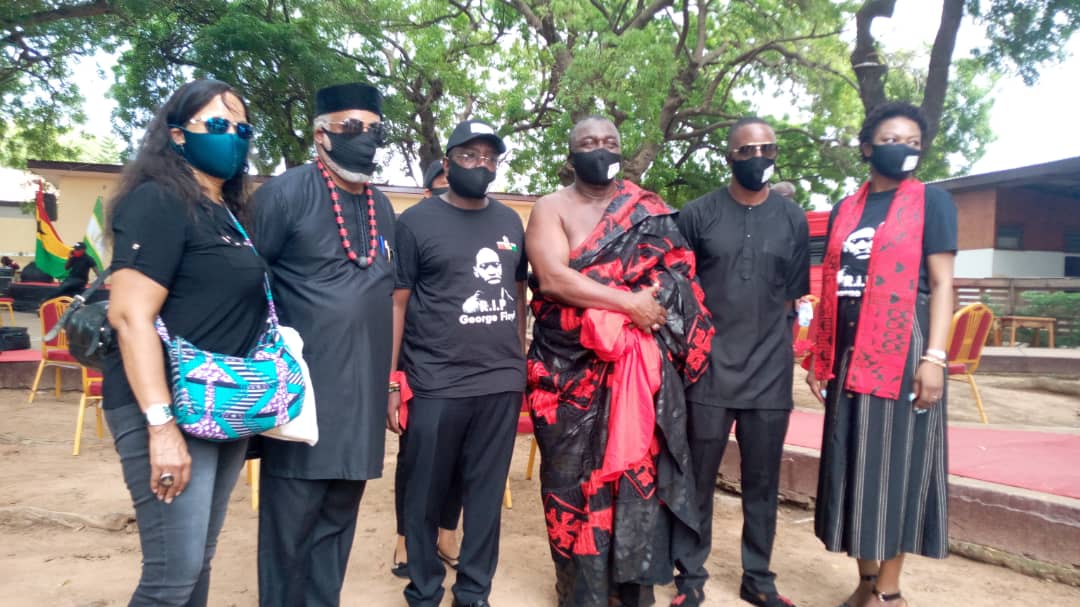
The memorial service in Ghana was held on the grounds of the W.E.B. Dubois Centre on the morning of Friday 5thJune 2020. Floyd’s name was also memorialized on the wall at the Diaspora African Forum, where other people from the diaspora have their names forever remembered. The service shed light on the negative experiences of African Americans and all black people from around the world, due to racism.
Hon. Barbara Oteng-Gyasi, Minister of Tourism, Arts and Culture, delivered a message that resonated with the diaspora community. She spoke of the injustices that face black communities not only in America but in other parts of the world. “We gathered to pray and remember as Martin Luther King said, ‘Injustice anywhere, is a threat to justice everywhere,’” she said. “We continue to open our arms and invite all our brothers and sisters home, Ghana is your home. African is your home. We have our arms wide open, ready to welcome you home,” she said with her arms spread, “…Africa is waiting for you.”
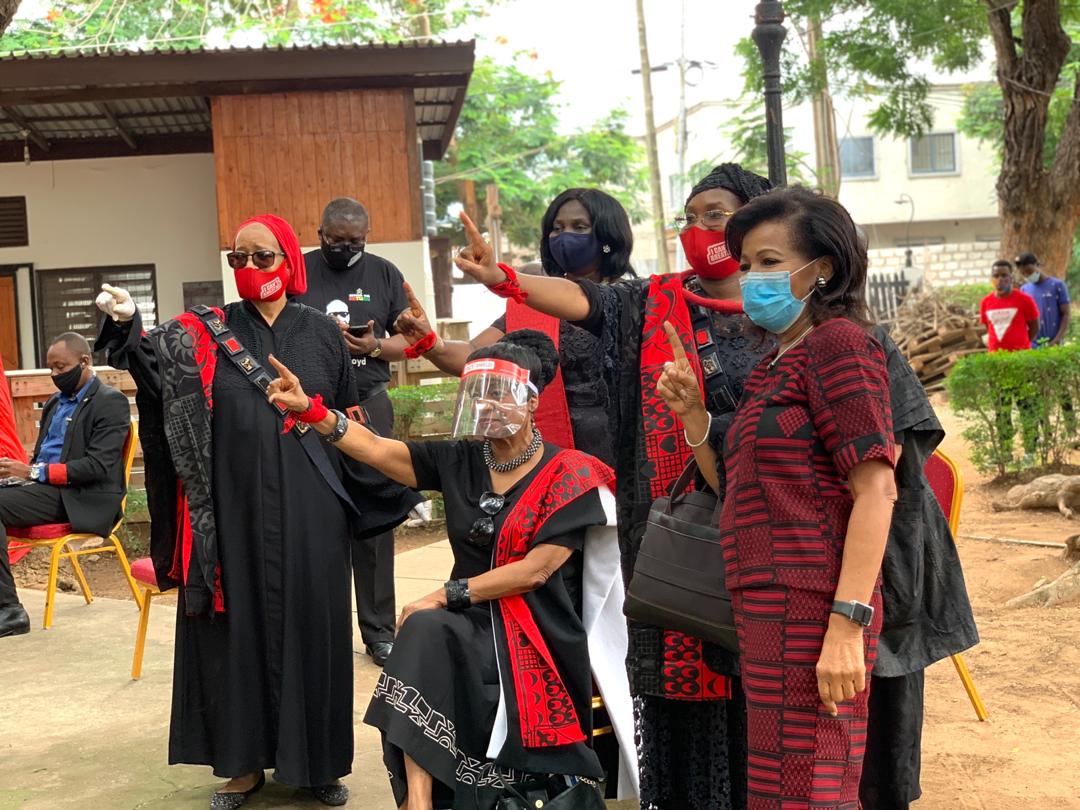
Ambassador Erieka Bennett, Head of Missions at the African Diaspora Forum, spoke of the pain felt by black people because of the ongoing injustices. Coming together was important in remembering not only George Floy, but the many others who have lost their lives in a senseless way because of systemic racism. “We have got to touch the conscience of the world to stand with us now,” Ambassador Bennett said.
Our brothers and sisters of African descent have suffered the long-lasting effects of racism, which is rooted in the history of the enslavement of Africans. Last year, Ghana commemorated the 400-years since the first documented ship of enslaved Africans arrived in the English colony, which is now Virginia, U.S.A. Thousands of African Americans and others from the global African family, travelled to Ghana to commemorate and to honour the resilience of the African spirit. It’s only natural, that we stand in support of our global African family as they face struggles and fight for change. Our community also acknowledges that many Ghanaians and other Africans also live in America and other parts of the world where they too are victims of the same systemic racism
Rabbi Kohain, Executive Director for PANAFEST Foundation, was one of the speakers during the memorial service. “This is not a fight just for African Americans, not a fight just for African people, but it’s a fight for humanity,” Kohain told the media after the service. He spoke on how important it was for Ghana to perform this exercise because other African countries often take their lead from Ghana, having been a country known for its Pan Africanism. “The justice that we seek is a justice that sees every human being equal before the eyes of the law. It’s not just about specific individuals but about the systemic institutions that have supported racism,” he said.
“Ghana has taken the leadership role on honouring and doing this…and we want to thank the Minister for the wonderful message she gave,” said Ambassador Erieka Bennett. “The message is ‘We are one’ regardless of where you’re from, if you are a black person you are an African and that’s the message, we want people to understand.”
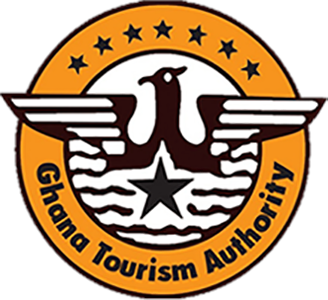

 Call Center
Call Center
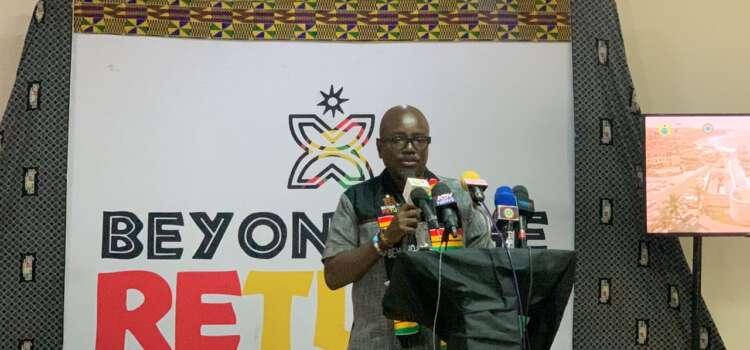
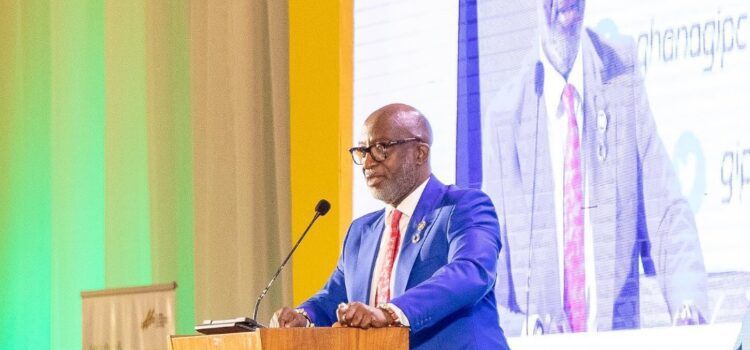
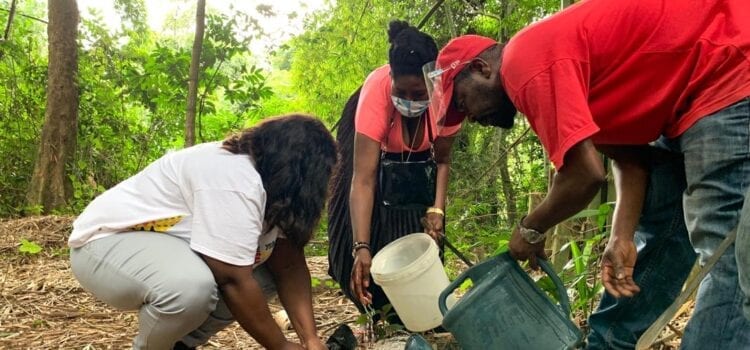
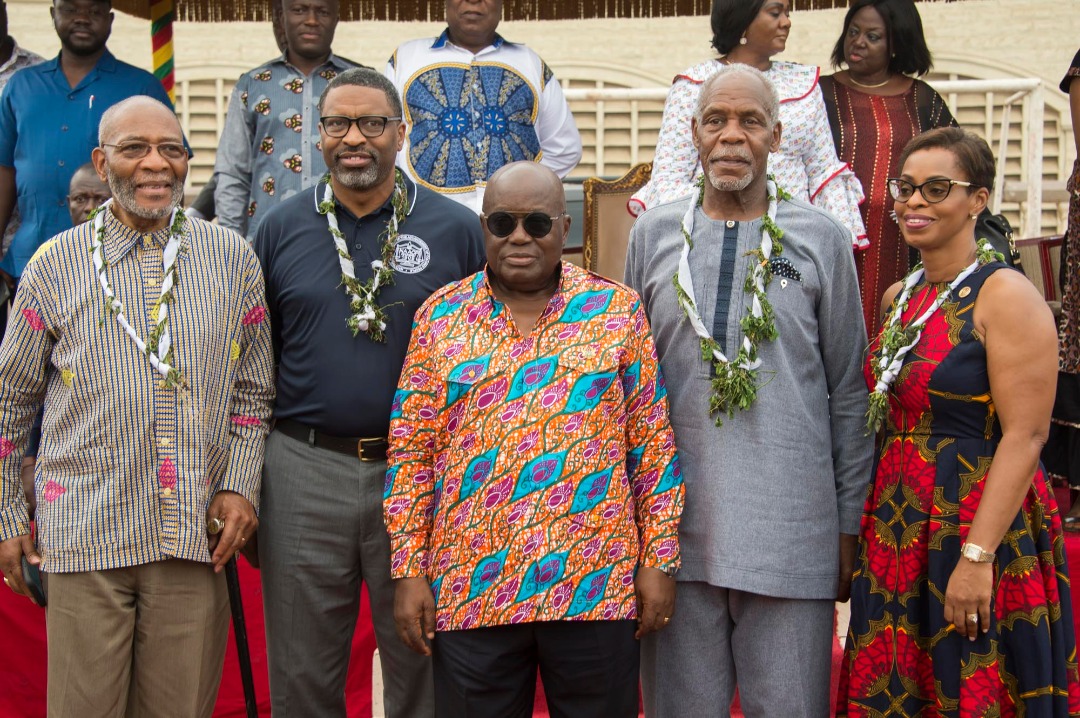

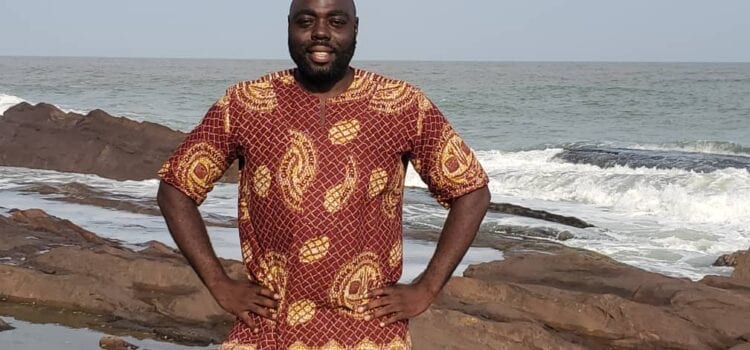

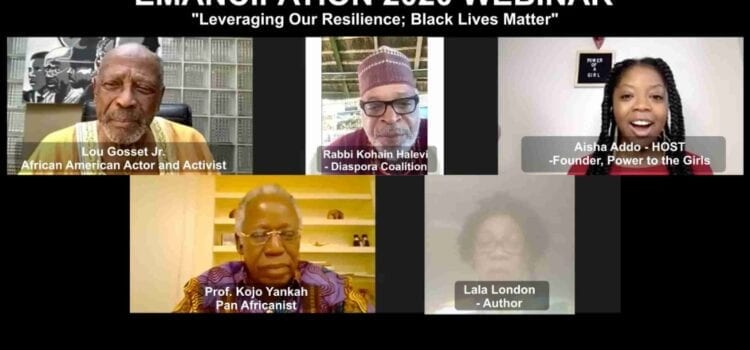
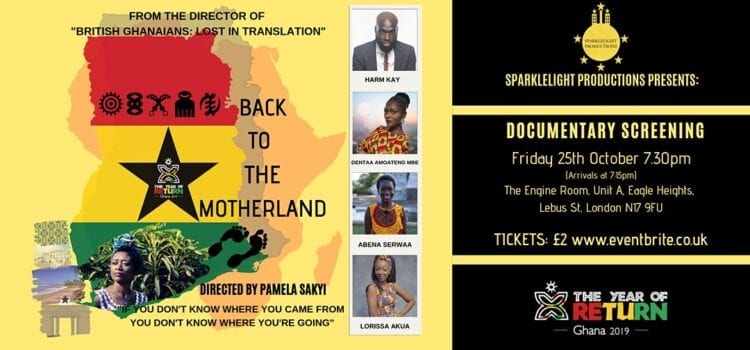
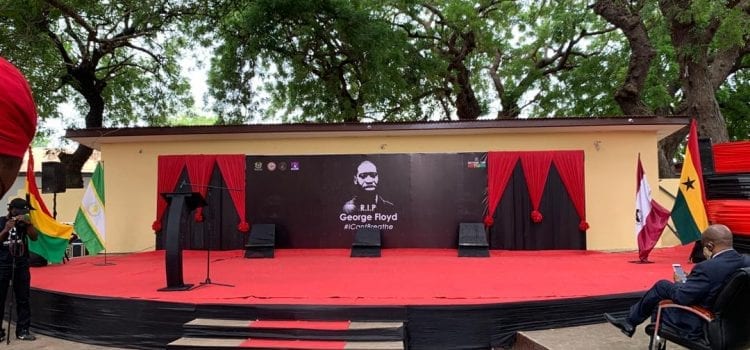
 Call Center: 0307007100
Call Center: 0307007100